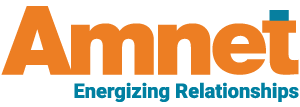The European Accessibility Act (EAA) deadline in June 2025 has accelerated accessibility compliance across all industries. We must remember that accessibility is not just about passing the EAA checklist but maintaining and improving the standards henceforth. What can we do to uphold the functionality of our products and services?
Here are a few best practices that will help.
- Accessibility Testing: Testing new born-accessible products, services, and content and remediating backlogs is done periodically to monitor and fix issues and make adjustments wherever necessary. A combination of automated tools and manual checks provides insights to make data-driven decisions.
- Accessibility Auditing: We are not talking about the preparations for EAA compliance. Regular accessibility audits are necessary to identify weak spots, address concerns in feedback, and discuss recommendations for improvement. This will help us fine-tune the processes in place.
- Accessibility Training: Training as many individuals as possible is critical to establish a culture that supports accessibility. Role-appropriate awareness and training programs to improve and fill gaps in skill sets will build your accessibility strengths. Designated individuals or teams that work for EAA compliance will have more impact at the organizational level to influence decisions.
Business Risks in EAA Noncompliance
According to Accessibility.com, 1,202 website accessibility lawsuits were filed in 2024. Unlike in the United States where lawsuits enforce compliance, litigation is uncommon but increasing in the European Union. After the EAA deadline, risks will vary depending on the severity of noncompliance, how it affects the user, the origin of the complaint, and the national law. It can be financial or nonfinancial, but there will be reputation damages that cannot be undone.
- Fines: A common risk is fines mandated by law. The amounts can vary on a case-by-case basis.
- Litigations and Settlements: Users can sue for discrimination, leading to heavy litigation fees and costly settlements.
- Prison Time: Punishment in countries like Ireland that have strict accessibility laws include prison time.
- Regulatory Limitations: Restrictions or exclusions may be placed on manufacturing and sales and limitations may be placed on operations, procurement, and market reach. Increased monitoring and stricter compliance requirements can burden the business.
- Tarnished Brand Image and Value: The negative attention will influence how the public, affected users, employees, and other associates view the business. This can significantly impact the organization’s sales and market position.
Opportunities in EAA Compliance
More accessible products and services in the market translate to increased market reach and a wider talent pool. While mitigating business risks, EAA compliance also creates opportunities for people with disabilities. Increased competition will eventually bring down prices and drive innovation to bring forth unique selling points. Accessibility and inclusion factor into the brand’s reputation and boost employee morale.
Businesses must adopt a proactive approach to continuously improve EAA compliance as a fundamental necessity rather than viewing it as an added benefit. Short-term fixes, widgets, plug-ins, and overlays can be tempting, but they often bring more trouble than relief. Invest in good skills, software, and tools for a strong foundation to build on. At Amnet, we CARE—consult, analyze, remediate, and engage. Our technology-driven BFSI accessibility solutions equip you for an inclusive banking experience. Get in touch with us now: BFSI Digital Accessibility Solutions – Amnet.
Sources
- https://reciteme.com/news/european-accessibility-act-checklist/
- https://www.wcag.com/compliance/european-accessibility-act/
- https://www.deque.com/blog/another-20-top-european-accessibility-act-eaa-questions-answered/
- https://www.acquia.com/web-accessibility-legislation/eaa
- chrome-extension://efaidnbmnnnibpcajpcglclefindmkaj/https://accessible-eu-centre.ec.europa.eu/system/files/2024-02/AccessibleEU_Final%20report%202023_English%20version_acc.pdf



